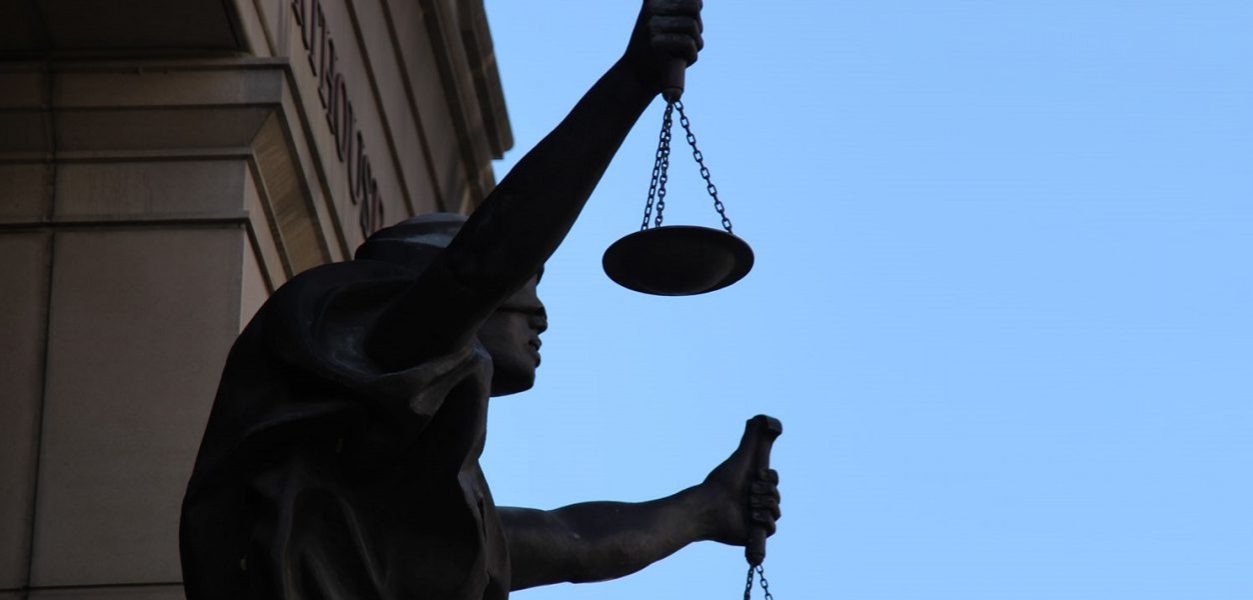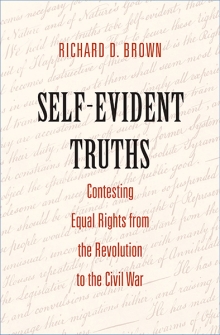Equal Rights in President Donald Trump’s America
Richard D. Brown—
“We are a nation founded on the truth that all of us are created equal,” President Trump just declared. “We are equal,” he said, “in the eyes of our creator, we are equal under the law, and we are equal under our Constitution.” These words are true. But it is also true that the equality of rights proclaimed in the Declaration of Independence and the Constitution has never been realized. Enslavement was a reality until the Constitution was amended in 1865; equal rights for women awaited Constitutional amendment and Supreme Court rulings in the twentieth century, and Congress delayed naturalization of non-white immigrants as citizens until the 1950s.
Practically speaking, however alluring Revolutionary and Constitutional ideology, at its core it was always problematic. The founders of the new republic professed a commitment to individual rights that was inseparable from the right to private property. Hence their cry: “no taxation without representation.” Moreover, they never doubted that private property must be heritable. Consequently, many argued that wiping out property in slaves would violate fundamental rights. No wonder many call the Civil War a second American Revolution.
The President’s invocation of equal rights is necessary; but the obstacles are formidable. White-collar advantages connected to education and occupation privilege some Americans over others, just as family networks and geographic location feed unequal opportunities. Even the infamous “white privilege,” though real, is distributed so profoundly unequally as to be a painful irony for many whites. And in recent years we see that the vast inequalities of wealth generated by present-day capitalism are being secured across generations with legal instruments like family trusts. However equal we may be in the eyes of the Creator, no objective witness would claim that all of us—those possessing high-priced legal talent and those without—are in fact equal before the law or the Constitution. Study after study of criminal justice and incarceration long ago demonstrated that the actual realization of equal rights is a distant if not chimerical goal.
The outlook is discouraging, but not hopeless. The beginning of a more equal regime for American rights starts with a tax regime that promotes a more nearly equitable distribution of wealth. This has been constitutionally approved public policy for over 100 years, starting with income and inheritance taxes. As the New York Times columnist David Leonhardt recently pointed out, fifty years ago, when the marginal income tax rate on the highest earners was 91%, George Romney, President of American Motors and the father of Republican presidential candidate Mitt Romney, was satisfied with an annual salary of $225,000, just twenty times the average earnings of his employees. Under Lyndon Johnson, Democrats lowered the highest tax rate to 70%, before President Reagan cut it again to 50% and President Bush dropped it well below 40 percent. When President Obama, demonized by many on the right, raised the marginal rate to 39.6%, he still kept the top rate far below the 70% of the Nixon years. More recently, reductions in estate taxes have magnified gross inequalities of wealth. In 2001 only $675,000 of a person’s estate was excluded from inheritance tax, and the top rate was 55%. In 2009 Congress multiplied the exclusion by five, raising it to $3.5 million while cutting the top rate to 45%. Two years later Congress raised the exclusion even further, to $5 million, while cutting the top rate down to 35%. As of today the first $5.49 million of each person’s estate is excluded from U.S. taxation, and the top rate thereafter is 40%—for those who fail to create trusts to shield their heirs from taxation. Those who worship the halcyon era of the 1950s and 1960s should recognize that income and estate tax rates did much to create middle class society. Public policy restrained inequality for “the greatest generation;” now it looks away.
At colleges and universities, as in education more broadly, the most advantaged youth are rewarded with the greatest privilege. Since 1980, notwithstanding affirmative action programs, black and Hispanic enrollments at the nation’s top institutions have lagged, while legacy preference in college admissions continues to be justified as promoting donor loyalty.
Privilege—especially for one’s children and grandchildren—retains a powerful grip on American values. No one should imagine a triumph over wealth and privilege. People of means have always been skilled at defending their interests.
Yet as the nation’s struggles over slavery, women’s rights, immigrant and civil rights have demonstrated, defenders of the status quo do in fact yield some part of their advantage—as with acceptance of income and estate taxes—for the sake of peace and security. That our billionaire President Trump, a champion, indeed a poster-boy for privilege, should invoke the nation’s testament of equal rights bespeaks not only the contradictions within that inheritance, but also its continuing power.
Richard D. Brown is Board of Trustees Distinguished Professor of History, Emeritus, at the University of Connecticut. His previous books include Knowledge Is Power: The Diffusion of Information in Early America, 1700–1865;The Strength of a People: The Idea of an Informed Citizenry in Early America, 1650-1870; and the coauthored microhistory The Hanging of Ephraim Wheeler: A Story of Rape, Incest, and Justice in Early America.


